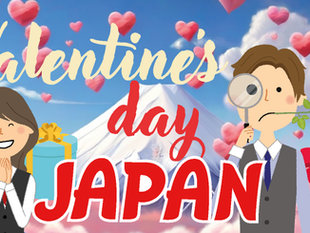

What is Certified Translation?
A certified translation is a translated document that includes a statement verifying its accuracy. It is the translator or translation company that has completed the translation that would provide this statement. However, the rules regarding who may or may not certify a translation vary from country to country.
While some countries allow only state-appointed translators to complete and verify certified translations, other countries permit any translator to certify their work. Between these two extremes, there are countries where a translation can be completed and certified by professional translators who boast specific credentials. Those credentials could include membership of certain translation associations.

When would a certified translation be needed?
Certified translations could be required for a variety of purposes including:
Legal proceedings such as marriages and divorces
Applications for passports
Applications to academic institutions
Criminal records checks
Immigration applications
Visa applications
Which documents could require certified translation?
Certified translations could be needed in a variety of circumstances. Each country and institution within that country will have its own requirements regarding the provision of certified translations. But you would usually require a certified translation of the following documents for formal proceedings in most countries:
Birth certificates
Marriage certificates
Death certificates
Employment contracts
Criminal records checks
Academic transcripts and university degrees
Immigration and visa documentation
Work permits
Court documents
Who can certify translations in the UK and Japan?

Surprisingly, there is no formal certified translation system in the UK. While translation is unregulated in the UK, official organisations such as government bodies will often stipulate that translations must be certified by a member of the Institute of Translation and Interpreting (ITI) or the Chartered Institute of Linguists (CIOL). Both organisations boast stringent admission requirements.
The translator or translation agency who has undertaken the work must attest that a translation is a true, complete and accurate translation of the original document. This attestation would be in the form of a dated, signed and stamped statement of truth.
As in the UK, translation in Japan is not regulated. A certified translation is one where the translator or the translation company makes a statement asserting that a translated document is correct and faithful to the original document.
Some translators may choose to include a caveat in their certifications such as “to the best of my knowledge and belief”.
What happens in other countries?
Many countries, particularly those in the EU, have far more stringent regulations than those in the UK or Japan. For example, in France, certified translations can only be carried out by translators that are registered with the courts. There are strict regulations as to the processes that translators must follow. The situation is similar in Germany.
What is a notarized translation?
In certain circumstances a notarized translation would be required as this provides a guarantee as to the translator’s credentials. A translator would need to attend a Notary Public Office to swear before the Notary Public their professional qualifications and that the translation is accurate to the best of their knowledge.
What is an apostilled translation?

An apostille is a government-issued certificate that authenticates a document for use in another country. Apostilled Translation is also known as Legalised Translation. The competent authority in a country that is responsible for issuing apostilles checks that the signature, seal, or stamp on a document is genuine and then attaches an apostille to the document. An apostille verifies the authenticity of a signature but it is not an endorsement of the content of a document.
An apostille ensures that the document concerned is recognised in all States that signed the Hague Convention of 1961.
In the UK, the competent authority is the Foreign & Commonwealth Office. In Japan, it is the Ministry of Foreign Affairs.
Certified translations at Word Connection
We frequently receive requests for certified translations, and we can provide these. Kaori Myatt is certified by the Chartered Institute of Linguists to provide certified English to Japanese and Japanese to English translations. She has an official stamp with which to certify official translations.
Our teams in both France and Japan have extensive experience of handling certified translations for use in the UK and Japan. They understand the relevant regulations and requirements in both countries. Our team in France is also familiar with the French system and can always source a court-certified translator.
It can be difficult to identify appropriate translators in many countries and to understand the relevant regulations. But at Word Connection, we can assist you by identifying and then engaging the professionals required to undertake certified translations for most territories.
What information do we need?
If you believe that you will require a certified translation, it is important for us to understand the context. We can then decide whether you need a certified translation, a certified and stamped translation, a notarized translation and/or an apostille.
To this end, we would ask that you provide the following details:
The nature of the document to be translated.
The intended purpose of the translation (what you need to use it for).
The country where you wish to use the document.
When you will need to use the document.
To complete the translation, we would require a high resolution scan of the document. A photograph often won’t be sufficiently clear and legible. The time it will take to complete the process will depend on the country concerned and whether you will need the translation to be notarized. It is important that you initiate the translation process at the earliest opportunity and that we are aware of any time constraints from the outset.
Need a certified translation?
We would be delighted to advise you and to provide you with certified translations of your documents. Contact us today for further information.




